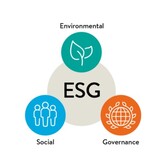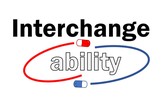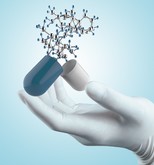Biosimilars/Research
Reaching ESG goals in pharmaceutical development
A recent article published in GaBI Journal, ‘Aligning environmental, social, and governance to clinical development: moving towards more sustainable clinical trials,’ [1] explores how regulators, pharmaceutical companies, and clinical researchers can align with environmental stewardship, social diversity, and equitable governance (ESG) goals for the efficient conduct of clinical trials, including those of biologicals and biosimilars.
What is the future for the US biosimilar interchangeability designation
The evolving regulatory landscape of biosimilars and the concept of ‘interchangeability’ in the US, is explored in the GaBI Journal article, ‘US interchangeability designation: are we ready to cut the Gordian knot?’ [1].
Biosimilar clinical efficacy studies: are they still necessary?
A paper published in Drugs, explores the evolution in biosimilars regulatory thinking which is now moving away from the default requirement for clinical efficacy studies (CES) for approval [1]. This follows the release of European Medicines Agency's ‘draft reflection paper on a tailored clinical approach in biosimilar development’ [2] published on 1 April 2025.
How the WHO is expanding access to biosimilars
The World Health Organization (WHO) has highlighted its role in expanding global access to biosimilars in a February 2025 feature article, ‘Biosimilars: expanding access to essential biologic therapies’ [1].
Optimizing costs with biosimilars: Brazil's case
The adoption of biosimilars, biological drugs similar to reference medications, has emerged as a pivotal strategy for reducing healthcare costs while maintaining efficacy and safety. A review by Azevedo, VF, et al.examines how Unimed Maringá, a private healthcare provider in Brazil, implemented a biosimilar management programme, achieving significant cost savings and broader patient access to essential therapies [1].
Biosimilars in low- and middle-income countries
Biosimilars offer a viable route to treatment for those with non-communicable diseases (NCDs) living in low- and middle-income countries (LMICs). A review article published in GaBI Journal titled ‘Increasing adoption of quality-assured biosimilars to address access challenges in low- and middle-income countries,’ offers insights into the benefits of biosimilars for better access to biologics in LMICs, focusing on data from selected emerging markets (Brazil, Colombia, Malaysia, Mexico, Nigeria, Taiwan, and Turkey).
Positive safety and efficacy primary endpoint results for AVT05 (golimumab proposed biosimilar)
In November 2024, at the American College of Rheumatology (ACR) Convergence 2024, Alvotech shared the positive results of the primary endpoint of their comparable safety and efficacy study for their golimumab proposed biosimilar, AVT05 [1]. This is a biosimilar candidate to Janssen Biotech’s anti-inflammatory drug product, Simponi.
Are interchangeable biosimilars at risk?
In the US, the interchangeability designation earned by some biosimilars, now allows them to be substituted at pharmacy level, without physician approval. This has bolstered patient and physician confidence in these products, boosting their uptake. However, study published in GaBI Journal now examines how misinformation about interchangeable biosimilars undermines US health policy, physician confidence, and patient health [1].
Comparative efficacy studies: where are we now?
In an article published in GaBI Journal titled ‘Comparative efficacy studies of biosimilars: data versus theoretical risks, beliefs, and comfort’ [1], Professor Pekka Kurki, a Clinical Immunology Professor at University of Helsinki, Finland and a member of the Finnish Medicines Agency (Fimea), explores the current position on biosimilar efficacy studies held by medicines agencies across the globe.
Pertuzumab biosimilar HLX11 meets primary endpoint in phase III comparative clinical study
Shanghai Henlius Biotech and Organon announced on 30 September 2024 that their phase III comparative clinical trial for HLX11, an investigational biosimilar to Perjeta (pertuzumab), met its primary endpoint.









